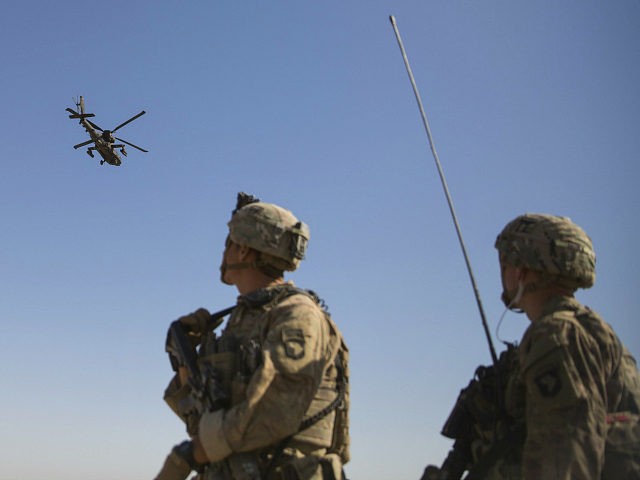The Afghan National Army (ANA), backed by U.S.-NATO troops, has killed an estimated 200 Taliban narco-jihadis in Afghanistan’s northern provinces, including 15 top commanders, since the terrorist group launched its so-called annual spring offensive on Friday, a local military spokesman revealed on Tuesday.
Troops from the Afghan National Defense and Security Forces (ANDSF), which includes military and police units, have injured an additional 80 Taliban in the “ongoing” battles, China’s state-owned Xinhua news agency learned from Mohammad Hanif Rezai, a spokesman for the ANA.
Rezai acknowledged the jihadis killed seven Afghan security forces and injured 15 others.
Afghan security officials rebuffed claims by Zabihullah Mujahid, a Taliban spokesman, that the terror outfit has “gained grounds in the northern Kunduz, Takhar, Badakhshan, Baghlan and Faryab provinces,” Xinhua points out.
The Taliban “has spared no efforts to overrun at least some districts or a city but so far failed to achieve the goal,” Rezai indicated to the Chinese state media outlet.
Badakhshan, home to operations by Chinese Uighur [or Uyghur] jihadis linked to the Taliban and al-Qaeda, borders China’s largest province of Xinjiang. The region is home to the largest concentration of predominantly Uighur Muslims.
Without revealing their nationalities, Rezai told Xinhua that “over a dozen foreign fighters” are among the Taliban fatalities. Northern Afghanistan also borders Turkmenistan, Uzbekistan, and Tajikistan.
On April 12, the Taliban announced the launch of its annual spring offensive dubbed “al-Fath,” which means victory in Arabic. In the announcement, the group indicated it remains committed to establishing strict Islamic laws or sharia in the country, stressing that the goal of the offensive is to create an “Islamic system” in an Afghanistan “cleansed from American occupation,” according to Voice of America (VOA).
The Taliban’s spring offensive came amid ongoing peace negations between the group and the United States. U.S. President Donald Trump’s administration has made the negotiated political reconciliation between the Afghan government and the Taliban — a move that could grant the group the opportunity to return to power — the primary goal of its strategy to end the more than 17-year-old war that began in October 2001, in the wake of the September 11 attacks.
Despite U.S. pressure, the Taliban continues to deny Kabul the opportunity to participate in America’s intensified peace-seeking efforts, arguing that it will not do so until all foreign troops leave Afghanistan.
Taliban narco-terrorists, whose regime was toppled by the U.S. military in December 2001, still consider themselves the only legitimate government in Afghanistan, dismissing Afghan President Ashraf Ghani’s administration as an American “puppet.”
During the ongoing peace negotiations, the Taliban has stepped up its attacks against U.S. troops as well as Afghan security forces and civilians, particularly since the start of its spring operations.
According to the latest U.S. government assessment, the Taliban controls or contests more than 45 percent of Afghanistan’s districts where about 35 percent of the population resides. The group reached unprecedented levels of influence and territorial control under the previous U.S. administration and has continued to do so under Trump.
Taliban jihadis generate most of their terrorist activity funding from actively trafficking and cultivating opium and its heroin derivative, a small portion of which is fueling the deadliest opioid crisis in the United States in recent memory.
It remains unclear if the United States will push the Taliban to sever its ties to opium and heroin as part of a potential peace agreement.
Peace negotiations have so far yielded draft agreements — the eventual withdrawal of U.S.-NATO forces in exchange for counterterrorism assurances by the Taliban, which claims it will prevent Afghanistan from harboring international jihadis bent on attacking the American homeland, namely al-Qaeda and the Islamic State (ISIS/ISIL).
Taliban terrorists have rejected the Trump administration’s plan of leaving behind a residual force to ensure the militants keeps their promises.
In response to the Taliban’s spring offensive, the Ghani administration vowed to continue fighting the terrorist group.

COMMENTS
Please let us know if you're having issues with commenting.